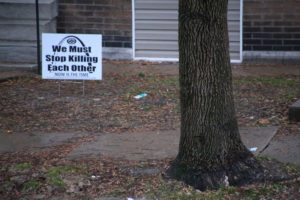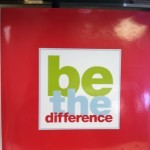One Way to Turn Mayhem into Change: Write Your Story
The excellent editorial that appeared on Sept. 18 issue of the St. Louis Post-Dispatch points to the lack of a clear, defined purpose in the city’s protests since Jason Stockley was acquitted of murder charges on Sept. 15. The rage and the emotion fueling the protests are understandable to a degree, but when I read about windows of the St. Louis Public Library’s Schlafly branch being smashed in and books being pulled off the shelves, I have to wonder if protesters even understand themselves what exactly they are doing.

Photo courtesy of Creative Commons
My family moved to St. Louis in mid-2015, in the wake of the Ferguson uprising and as the “Black Lives Matter” movement was gaining traction. From a hotel room in St. Louis, I remember seeing a news report about a local sign manufacturer who was churning out signs that read STOP KILLING EACH OTHER. He could not make enough signs to keep up with demand. I remember sinking to the floor in anguish. What are we doing, moving to a place where “STOP KILLING EACH OTHER” signs can’t be made fast enough? I asked myself.
Fast forward to the present. The Post-Dispatch editorial staff wrote on Sept. 18: “Property destruction aside, randomly shutting down businesses and delaying motorists from getting to their destinations definitely adds to discomfort levels. Wrecking the economy, however, will only lead to greater unemployment, poverty and business flight. It’ll make life even harder for people struggling on the margins.”
As the editorial staff pleads with protesters to outline how community leaders can be part of the solution to injustice, I propose one step toward community conversation and protesters defining their goals: Write about your experience. Explore your emotions (rage, confusion, sadness, etc.) and your role on the page. Protesters: Ask yourself what you hope to gain in marching through the city’s streets. Citizens of the community: Ask yourself what you might contribute to a conversation about race, injustice, the wildly diverse understandings of police officers’ roles in our city.
Further, I propose we create a space conducive to writing about our collective experiences and exploring the tough questions. I envision a writing workshop at a public library, the very institution that puts a world of knowledge at the fingertips of every person in America, for free, where participants across racial, economic and educational spectrums can safely explore their place in our city’s painfully fractured landscape.

Photo courtesy of Creative Commons
John F. Kennedy, a champion behind the Civil Rights movement, once said that “libraries should be open to all, except the censor. We must know all the facts and hear all the alternatives and listen to all the criticisms.”
Around our neighborhoods, new signs are popping up. They contain a lot of colorful words and it’s hard to read the entire sign from the driver’s seat of a car, but the final three words are: “Kindness above all.”
The Post-Dispatch poignantly called out the unsavory irony of the protesters’ mayhem on Sept. 18: “Shutting down concerts and blocking commerce definitely serves the protesters’ stated purpose of disrupting. But it risks penalizing those who aren’t necessarily the enemy. If anyone is more symbolic of uplifting the poor and oppressed around the world, it’s Bono of the rock group U2, whose concert had to be canceled because of the weekend protests.”
Let’s consider “Kindness above all.” Let’s get to the root of our own experiences, and what drives our thoughts, actions and responses toward others.
A healthy protest is an invitation for dialogue. Writing, at its most basic level, is communication. Writing to explore your experience, emotions, role in an enormous struggle that pans our city and our nation could well be the beginning of clear path to action.
Over and over throughout history, writing has served as a key to understanding.
Without words on a page, libraries would not exist. Neither would countless discoveries, breakthroughs in science, biographies, personal narratives.
Anger is not a roadmap to change. But words that are thoughtful, honest, from the heart, can change everything.
*This post originally appeared as a guest column on the St. Louis Post Dispatch website.



